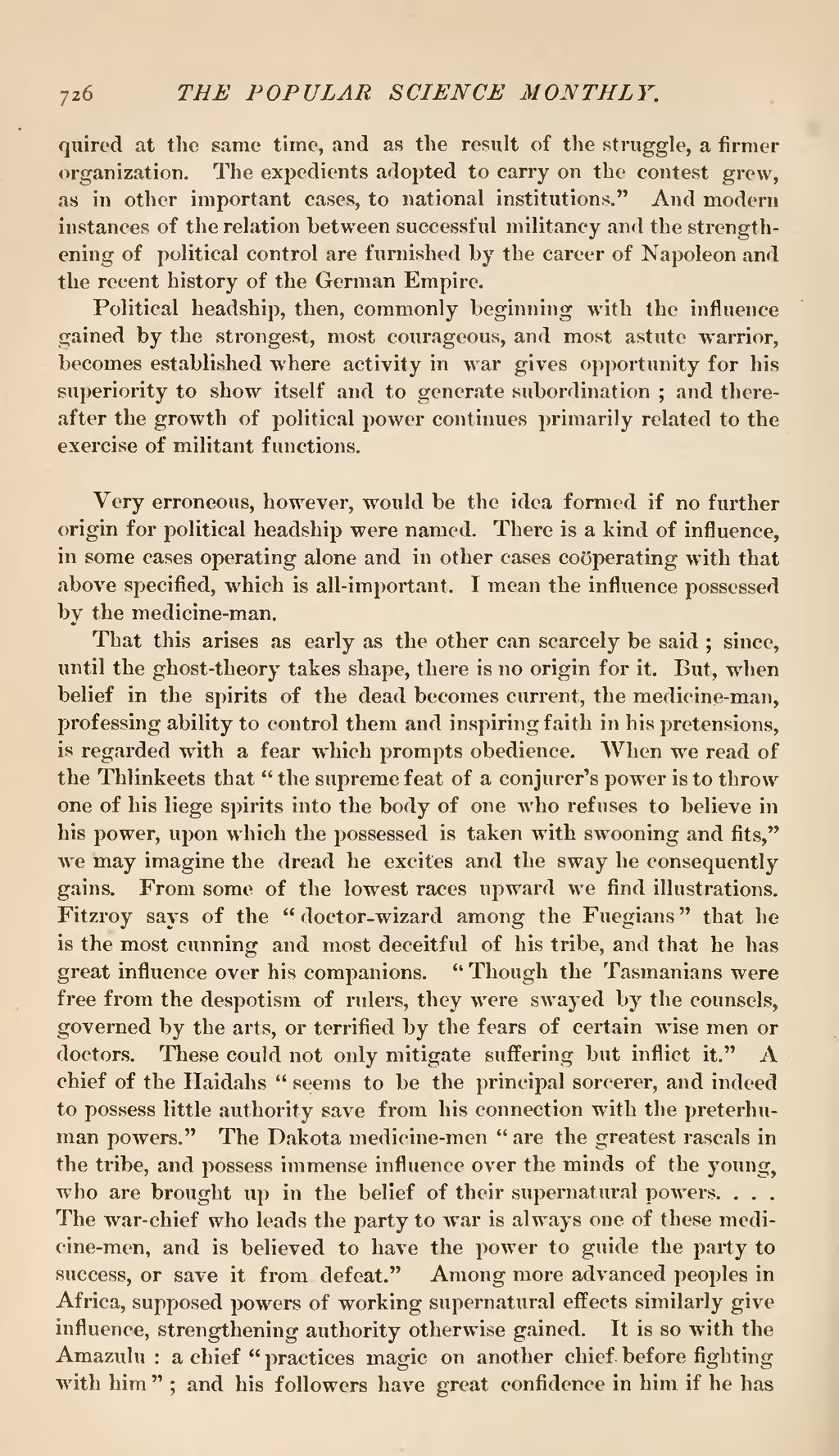quired at the same time, and as the result of the struggle, a firmer organization. The expedients adopted to carry on the contest grew, as in other important cases, to national institutions." And modern instances of the relation between successful militancy and the strengthening of political control are furnished by the career of Napoleon and the recent history of the German Empire.
Political headship, then, commonly beginning with the influence gained by the strongest, most courageous, and most astute warrior, becomes established where activity in war gives opportunity for his superiority to show itself and to generate subordination; and thereafter the growth of political power continues primarily related to the exercise of militant functions.
Very erroneous, however, would be the idea formed if no further origin for political headship were named. There is a kind of influence, in some cases operating alone and in other cases coöperating with that above specified, which is all-important. I mean the influence possessed by the medicine-man.
That this arises as early as the other can scarcely be said; since, until the ghost-theory takes shape, there is no origin for it. But, when belief in the spirits of the dead becomes current, the medicine-man, professing ability to control them and inspiring faith in his pretensions, is regarded with a fear which prompts obedience. When we read of the Thlinkeets that "the supreme feat of a conjurer's power is to throw one of his liege spirits into the body of one who refuses to believe in his power, upon which the possessed is taken with swooning and fits," we may imagine the dread he excites and the sway he consequently gains. From some of the lowest races upward we find illustrations. Fitzroy says of the "doctor-wizard among the Fuegians" that he is the most cunning and most deceitful of his tribe, and that he has great influence over his companions. "Though the Tasmanians were free from the despotism of rulers, they were swayed by the counsels, governed by the arts, or terrified by the fears of certain wise men or doctors. These could not only mitigate suffering but inflict it." A chief of the Haidahs "seems to be the principal sorcerer, and indeed to possess little authority save from his connection with the preterhuman powers." The Dakota medicine-men "are the greatest rascals in the tribe, and possess immense influence over the minds of the young, who are brought up in the belief of their supernatural powers. . . . The war-chief who leads the party to war is always one of these medicine-men, and is believed to have the power to guide the party to success, or save it from defeat." Among more advanced peoples in Africa, supposed powers of working supernatural effects similarly give influence, strengthening authority otherwise gained. It is so with the Amazulu: a chief "practices magic on another chief before fighting with him"; and his followers have great confidence in him if he has

